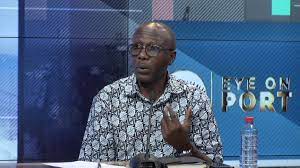The ECOWAS Commission for Maritime Law and Security (CEMLAWS) reported on Tuesday in Tema that the escalated cases of piracy in the Gulf of Guinea need immediate action.
Captain Dr. Kamal-Deen Ali (Rtd), Executive Director of CEMLAWS, voiced concern regarding the increase in piracy along the ECOWAS coast, which he blamed on regional bodies’ failure to put in place steps to fight certain criminal organizations.
The Gulf of Guinea has seen a rise in piracy in recent years, with data indicating that more kidnappings happened at sea in the first two months of 2021 alone than in the entire first quarter of 2020, he added.
He believed that certain organisations were utilizing better operational methods and newer market modules, although regional authorities were unable to deter them.
He said that if you encourage a crime to fester, the perpetrators would master it. The players have gained more revenue as a result of the market module of these crimes, and they have purchased quicker boats to perform their operations.
He reported that piracy organisations had more money for logistics, hostage housing, and mediation, and that there were gangs that abducted people at sea, transferred them from one area to another, and negotiated for ransom.
As a result, he urged countries to be more vigilant in the battle against piracy, noting that policymakers must have sufficient funding to allow security forces to obtain the necessary logistics to match the pirates’ intensity and sophistication.
According to him, the Nigerian government needed to speed up action against piracy since the Niger Delta area was responsible for 90% of the piracy cases in the sub-region.
Read Also: “Wakanda City of Return” will commence in August
Dr. Kamal-Deen, who is also a Senior Lecturer at the University for Professional Studies in Accra, said that the war against piracy must be taken seriously.
He said it has begun to leave its imprint in countries such as Ghana, and that attempts to tackle it must be intensified as the number of casualties grows, placing human life at risk and raising the cost of foreign trade in the sub-region.
“Not only can the cost of ship insurance double, but so will the cost of crew insurance. “This would result in higher freight costs, which will have to be collected on imports,” he added.
He said that the international community and African countries would work together to create a powerful force to combat piracy.
SOURCE: ATLFMONLINE

























